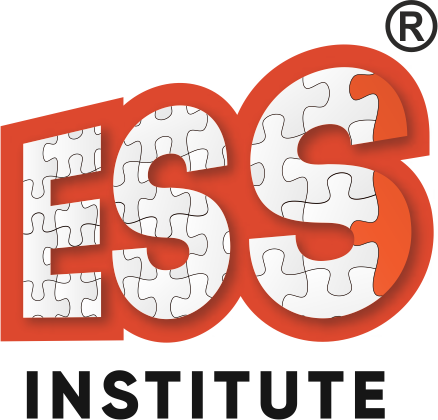The digital cosmos has a hidden area that is hidden from the untrained sight but is teeming with unrealized promise. Greetings from the mysterious world of affiliate marketing, where everyday people become digital entrepreneurs and use the strength of online collaborations to generate passive income. Prepare to discover the mysteries and understand the hidden gems that can alter the direction of your financial future as we enter this secretive domain.
What is Affiliate Marketing?
It is one area of digital marketing where affiliates advertise goods or services on behalf of merchants, a performance-based marketing strategy. The foundations of affiliate marketing will gonna be covered in this blog post, along with the functions of affiliates, merchants, and customers. Discover the fundamental concepts, compensation plans, and mutually beneficial connections that support this sector.
Affiliate marketing is a well-liked digital marketing tactic in which people, known as affiliates, advertise the goods or services of other companies in exchange for a reward for each successful lead or sale they bring in. It is a performance-based business model that is surely worthwhile to both the merchant and the affiliate.
Why to choose Affiliate Marketing?
- Passive Income: You can get passive income through affiliate marketing. You can keep making commissions after launching your campaigns and drawing in customers without taking an active role in each transaction.
- Minimal Upfront Investment: Affiliate marketing takes very little initial outlay. It is a cheap approach to launch an online business because you don’t have to make your own goods or manage inventory.
- Flexibility and Independence: You have the freedom to select the goods or services you want to promote as an affiliate marketer. Since you may choose your own hours and work from anywhere, you have the freedom to pursue other hobbies or obligations.
- Diverse Income Streams: With affiliate marketing, you can market goods or services from many vendors. You can target different niches and appeal to various audience interests thanks to this diversity, which raises your earning potential.
Getting affiliate marketing expertise can make you a successful freelancer earning in Lakhs after consistent efforts and hard work. But for that, you need to learn it from experience of experts and ESS Institute can help you learn practical Affiliate marketing course module from Best Digital Marketing institute in Delhi
Types of affiliate marketing
1) Affiliate marketing that is pay-per-sale (PPS):
Here, we will get deep down to the well-known Pay-Per-Sale (PPS) model. When a customer purchases something using your special affiliate link, you are paid as an affiliate. Find out how to target your audience, promote your products, and make your website or blog conversion-friendly. Maximize your earning potential by unlocking PPS affiliate marketing’s potential.
2) Affiliate Marketing for Pay-Per-Leads (PPL):
Earning money for producing high-quality leads is an exciting possibility provided by pay-per-lead (PPL) affiliate marketing. This will further reveal the inner workings of PPL, which pays affiliates a commission when leads they have referred take particular activities like registering for a newsletter or filling out a form. Learn how to generate leads, create landing pages that convert, and nurture leads for the best results.
3) Affiliate Marketing for Pay-Per-Click (PPC):
The ultimate purpose of pay-Per-click (PPC) affiliate marketing is to drive visitors to the retailer’s website. Regardless of whether a purchase is made, affiliates receive commissions when site visitors click on their affiliate links. The tactics underlying PPC marketing are revealed here only, including keyword research, ad placement, and landing page optimization for improved click-through rates. Become an expert at generating targeted visitors and increasing your PPC profits.
In PPC, there are two fundamental ideas:
1) Cost-per-acquisition:
CPA, or cost-per-acquisition, the seller or retailer is said to have gained a lead when a customer clicks on an affiliate link to visit a merchant’s online store and completes an action, like joining an email list or filling out a “Contact Us” form, and the affiliate is compensated each time.
2) Earnings-per-click (EPC):
This measure determines the typical earnings for each 100 clicks made by all affiliates participating in a retailer’s affiliate program.
Advantages of being an Affiliate
- Potential for Passive revenue: Affiliate marketing provides the chance to generate passive revenue. Once your advertising materials and affiliate links are in place, you can make money even while you’re not working.
- Low Startup Costs: Launching an affiliate marketing company normally only a small initial outlay. Potential business owners can save costs by choosing this approach because they won’t have to worry about developing a product, managing inventory, or overseeing customer service.
- Flexibility and Independence: You can work from any location with an internet connection as an affiliate marketer. The freedom to set your own schedule enables a flexible work-life balance and the pursuit of other hobbies or obligations.
- Diverse Income Streams: By promoting goods or services from several merchants, affiliate marketing allows you to diversify your income sources. This lessens reliance on a single source and enables you to accommodate different audience preferences and interests.
- No Customer Support Duties: As an affiliate, your major goals are bringing traffic to the store and directing clients their way. Customer support issues, product fulfilment, and post-sale assistance are handled by the merchant, so you won’t have to.
Disadvantages of being an Affiliate
- Intense Competition: The affiliate marketing industry is very cutthroat. Many affiliates are competing for the same audience’s attention since entry barriers are minimal. It can be challenging to stand out from the crowd and establish your presence.
- Dependency on Merchant: As an affiliate, you are dependent on the merchant’s reputation, customer satisfaction, and product quality to succeed. It may have an impact on your reputation and profits if the merchant doesn’t meet these requirements.
- Fluctuating Income: Affiliate marketing earnings can be erratic, particularly in the beginning. Building an audience, driving traffic, and gaining trust are processes that require time. Your earnings may also be impacted by variables like seasonality or modifications in consumer behaviour.
- Reliance on Affiliate Networks: To gain access to a variety of merchants and goods, many affiliates join affiliate networks. The rules, terms, and conditions that these networks frequently impose, however, can impose restrictions on your advertising tactics or cap your commission rates.
- Constant Learning and Adaptation: The affiliate environment is ever-changing. You must always learn about fresh industry trends, algorithm improvements, and marketing strategies if you want to stay ahead. It takes flexibility and constant education to adjust to these changes.
Certainly! Here are some unusual facts concerning affiliate marketing that people should be aware of:
- Global Reach: Affiliate marketing allows you to target audiences anywhere in the world. You can market goods or services to individuals in many nations, so extending your earning potential beyond international borders.
- Wide Selection of Products: Affiliate marketing provides a huge selection of goods and services. You can match your marketing with your interests and passions by finding affiliate programs in a variety of categories.
- Multiple Monetization Channels: Affiliate marketers have access to a variety of monetization options in addition to income from sales. This provides multiple ways to generate income, such as through leads, clicks, recurring commissions, upsells, and cross-sells.
- Opportunities for Collaboration: Affiliate marketing creates opportunities for collaboration and partnerships with other affiliates, content producers, and influential people in the industry. When you collaborate, you may cross-promote each other’s stuffs and benefit from each other’s audiences, which will strengthen your authority and widen your reach.
- Trackable Performance Metrics: You have access to comprehensive performance metrics and analytics while using affiliate marketing. Clicks, conversions, sales, and other important performance metrics can all be tracked, allowing you to assess the success of your campaigns and make data-driven adjustments.
- Creativity and Strategy in Balance: Effective affiliate marketers strike a balance between creativity and strategy. Strategic preparation, including keyword research, competitive analysis, and efficient advertising, assures that your efforts will provide the desired outcomes even though creativity aids in creating interesting content.
Conclusion
Congratulations! You’ve come across the dynamic world of affiliate marketing, learning about its various forms and tactics. If you have been equipped with skills, inspiration, and creativity, you are good enough to flourish in this fast-paced industry. Keep in mind that success in affiliate marketing needs tenacity, ongoing learning, and adaptability.

